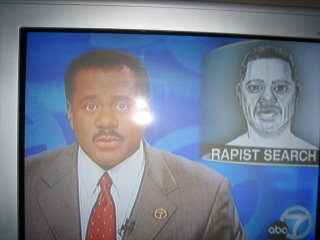From the New York Times:
The Internet firm BitTorrent, once a pariah for enabling vast unauthorized video file-sharing, plans to announce today that it has struck distribution deals with eight media partners, including 20th Century Fox, Paramount and MTV Networks.
It sounds like just another digital-content agreement, but the story doesn't add up.
The word BitTorrent refers to two different things. (OK, four, but we'll skip the other two.) The people at the company BitTorrent Inc. (one of the two things) seem to have used the confusion between those things to hoodwink the movie studios and the
New York Times.BitTorrent is the name of a method (or "protocol") for sharing files over the Internet. It was invented in 2001 by a programmer named Bram Cohen. (Fun fact: an estimated 40 percent of all Internet traffic consists of people sharing files using BitTorrent.) Napster had previously allowed people to share songs, but it was too slow and fragile for anything bigger than a three-minute single. BitTorrent allows people to share much larger files: four-CD box sets, games, movies. (The way it does this is clever and technically interesting but not germane to this discussion.) Napster and its successors wrecked the music industry's business model, and BitTorrent threatens to do the same to the movie industry by cannibalizing DVD sales.
BitTorrent Inc. is a company founded by Cohen and Ashwin Navin in 2004, long after people had started using BitTorrent to share movies. It's a small company that chiefly provides specialized software to businesses, and it's entirely peripheral to BitTorrent the protocol. Millions of people download movies using the protocol without ever coming into contact with the company.
So here's what seems to have happened: The movie-studio honchos are worried about piracy. They ask their 23-year-old assistants how the kids are downloading movies. The assistants say, "They use BitTorrent," referring to the protocol, and go back to spitting in their bosses' lattes. The executives say, "Ah, BitTorrent!" and return to their desks and Google "BitTorrent." They find a link to
bittorrent.com, the homepage of BitTorrent Inc. And so they offer BitTorrent Inc. a nice chunk of change to sell movies from bittorrent.com, and BitTorrent Inc. offers to make sure there's no pirated material available on its site. Here's how the
Times puts it:
The media companies are not only attracted to the large online audiences of companies like BitTorrent, but also want to enlist their support in eradicating unauthorized content. The media companies in the BitTorrent deal say that the Internet firm has pledged to police its network for illegal trading.“They are making a big commitment to us to filter the site,” said Jamie McCabe, executive vice president at 20th Century Fox. “When anything is up there that is not legitimate, they’ve pledged to take it down.”
What a win for the studio execs! A brand new revenue stream, and no more BitTorrent piracy!
Here's what they missed:
It's the protocol, stupid. People who want to download movies illegally don't go to bittorrent.com -- they go to hundreds of other sites, where they can use the BitTorrent protocol to download movies without the studios' consent. BitTorrent Inc. and bittorrent.com are entirely irrelevant to the piracy issue: if they both disappeared tomorrow, traffic in pirated movies wouldn't diminish in the slightest.
If the studios wanted, they could set up their own website and sell their own movies using BitTorrent (the protocol), and they wouldn't have to pay BitTorrent Inc. a dime. But they don't know what they're doing, and they're flailing around trying to keep their business together, and apparently the
New York Times can't figure it out either.
[EDITED to remove a statistic that I couldn't source. EDITED again to add the quote about BitTorrent Inc.'s anti-piracy efforts.]


